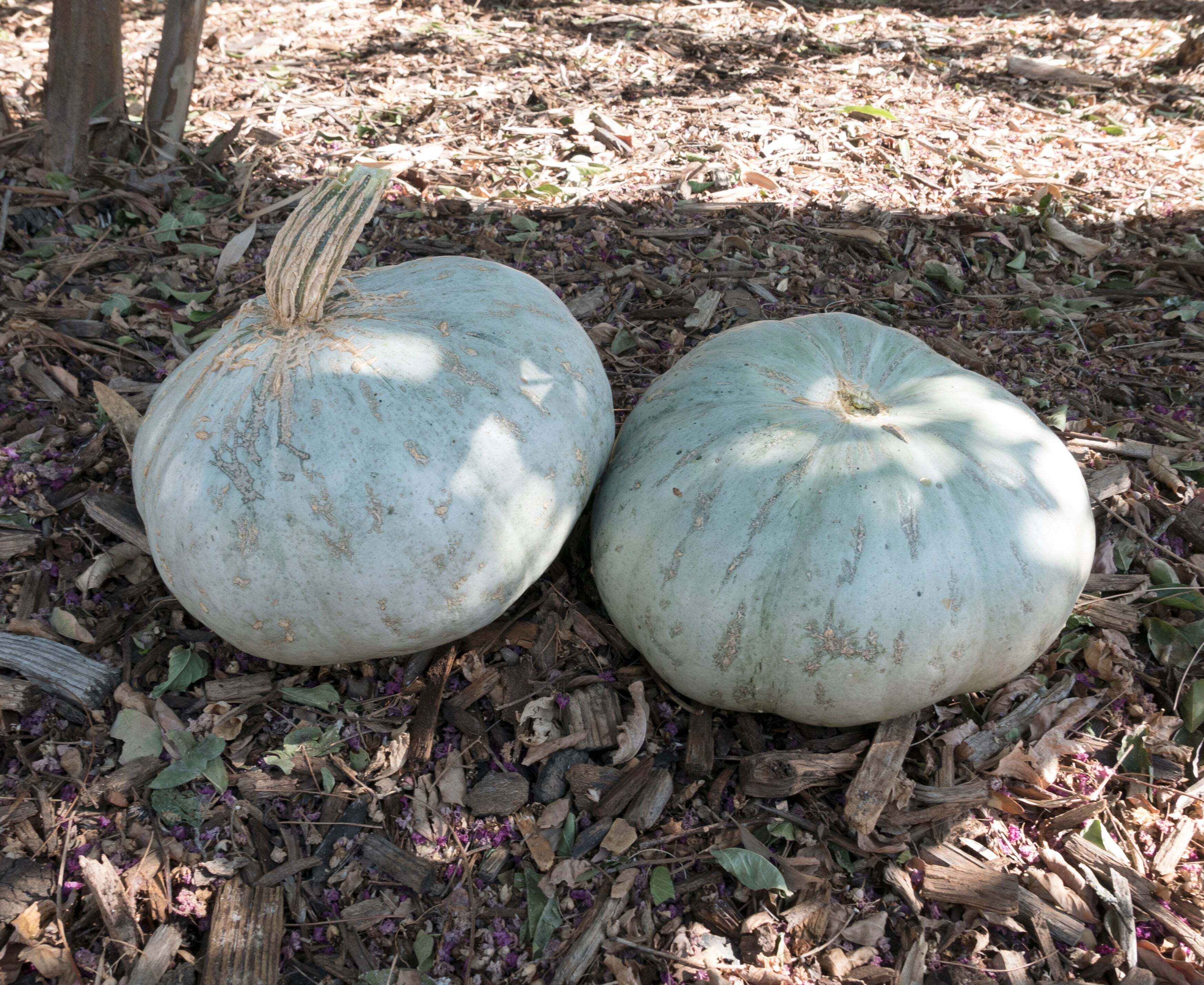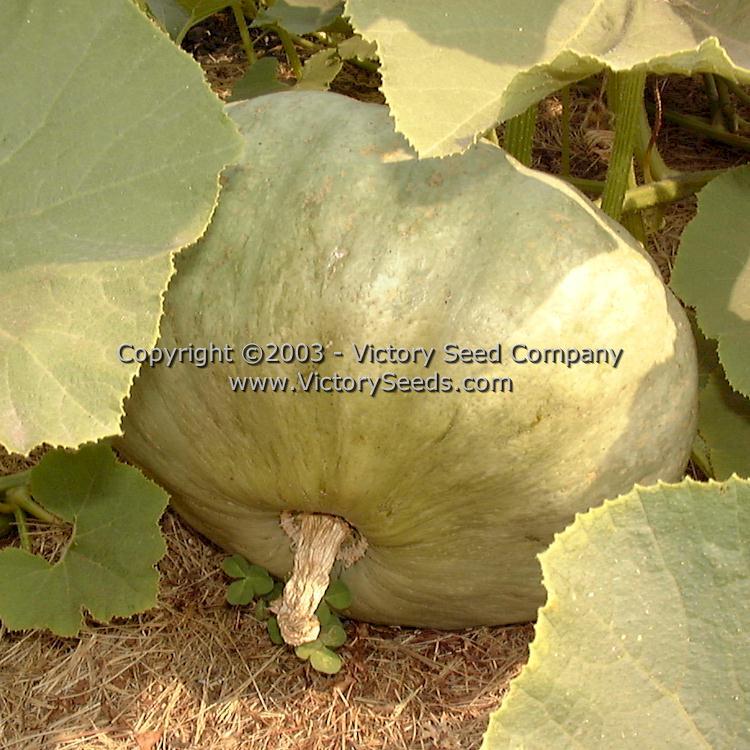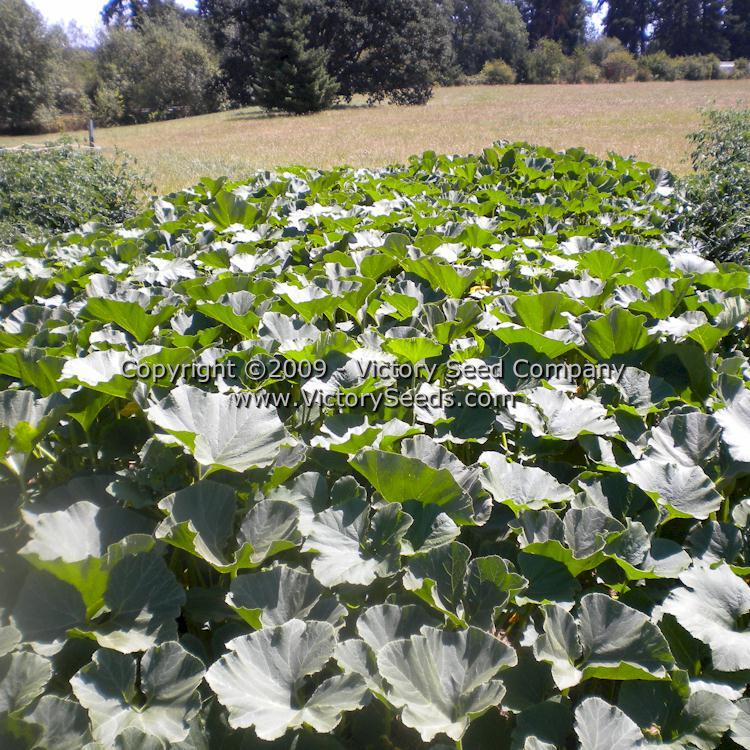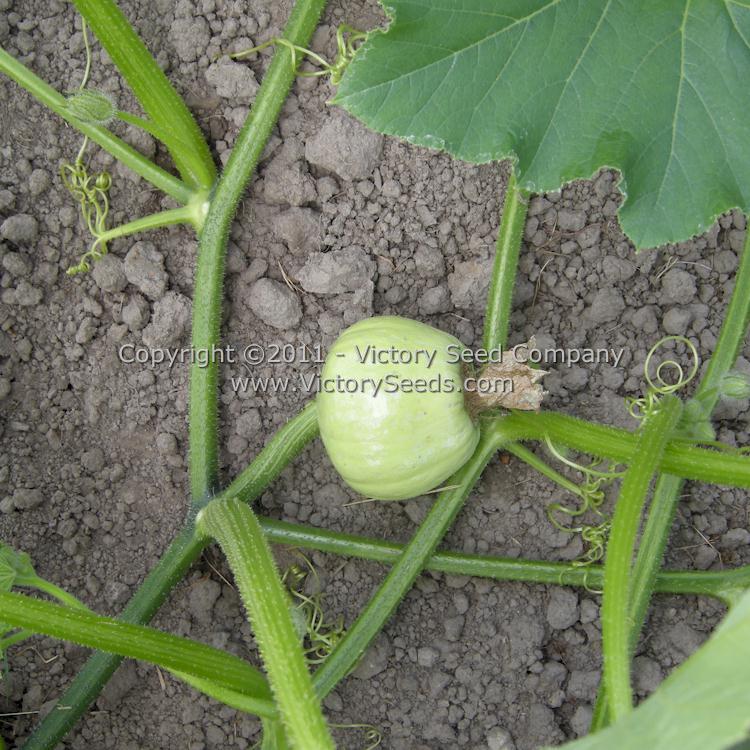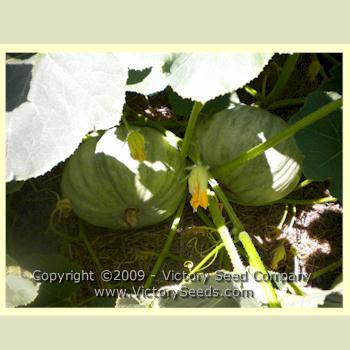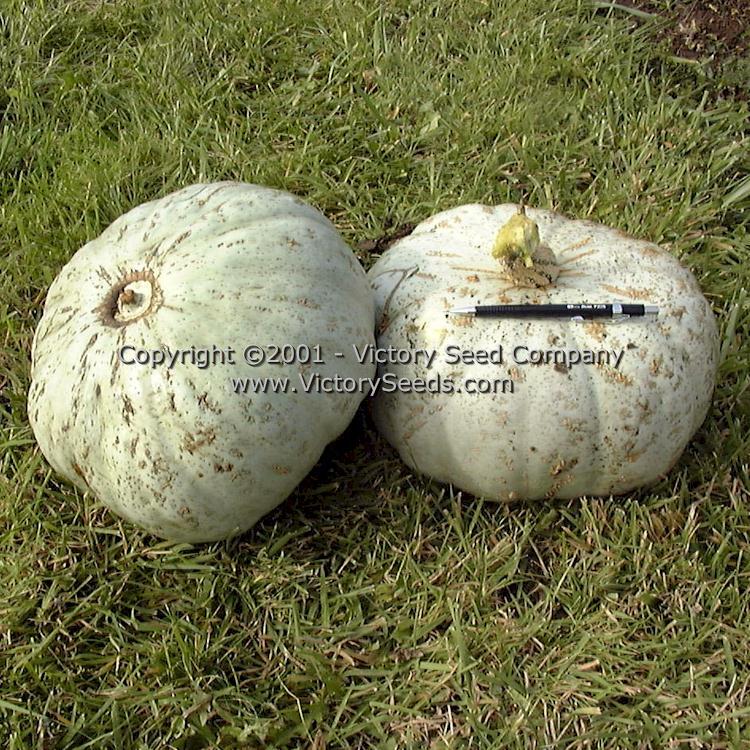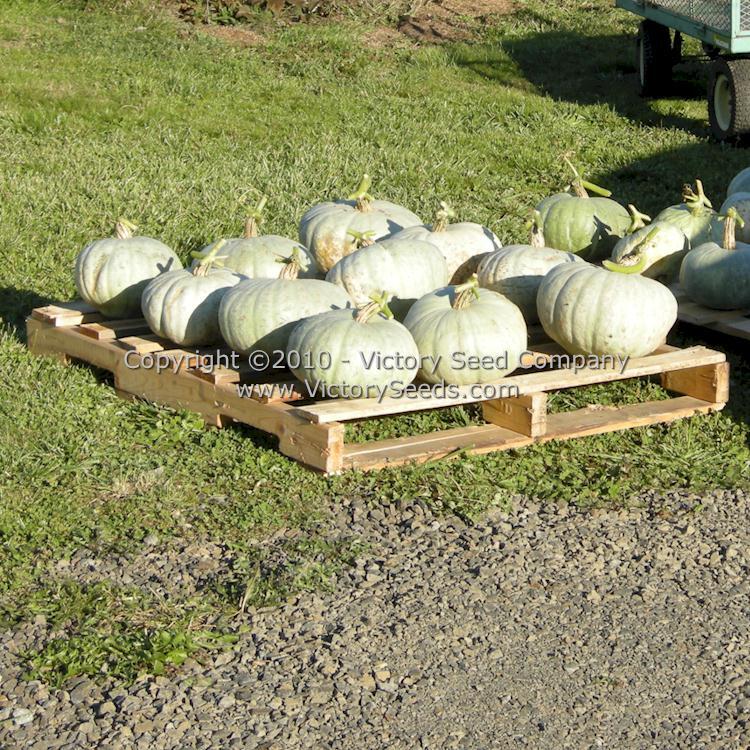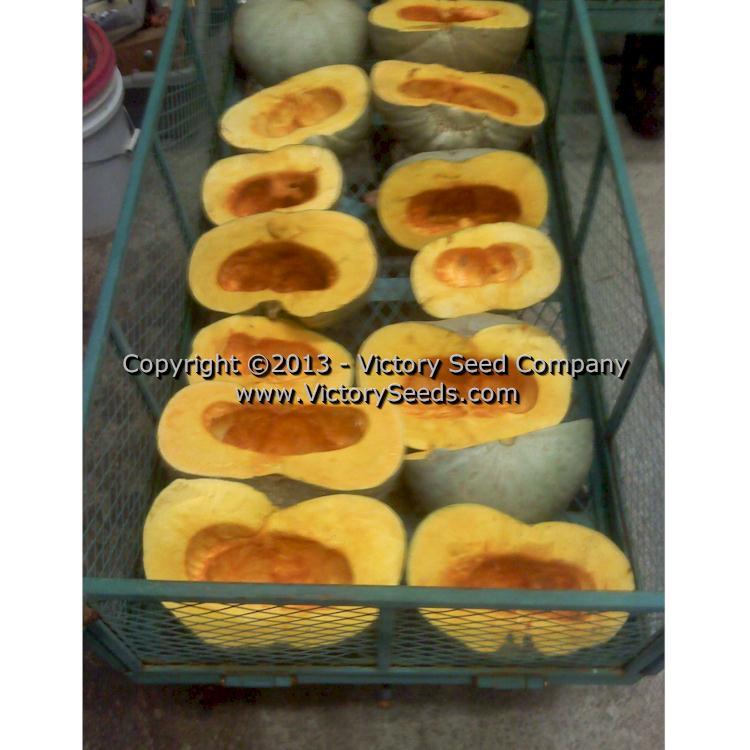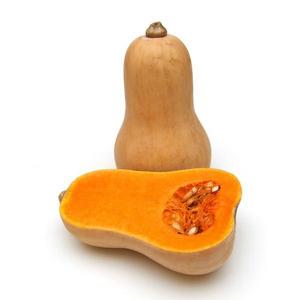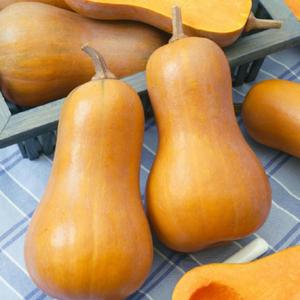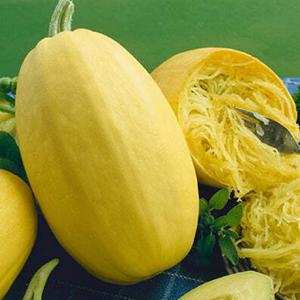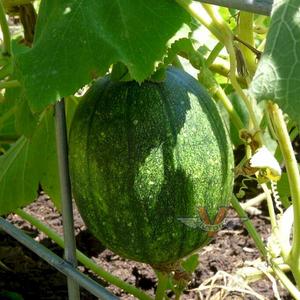







Sweet Meat Winter Squash
Price: $3.28
SKU: 3370231
The vines are vigorous and require a lot of space. The fruit weigh ten pounds or more, and are a bluish-gray color. Very hard shelled, the flesh is a deep orange color, thick, very sweet, dry and fine-grained (stringless).
They keep many months after being harvested. The 1947 Gill Brother's catalog stated that they, ". . . kept six squash in good edible condition from crop to crop." In a later paragraph, they return attention from the plant description back to its unusually long-keeping quality and state, ". . . the flavor and sweetness increases with age for at least six months from harvest."
The fruit can be simply stored and baked, or processed by canning or freezing. Victory Seed Co. founder, Mike Dunton described, "My mom used to bake and freeze the squash for reheating later. We also cut them into cubes and freeze the raw meat in freezer bags for use in soups and other recipes. 'Sweet Meat' has a very sweet, fine texture and is excellent on its own, added to recipes, or even baked as pumpkin pie. Can you tell that it is a favorite of ours?"
Here in the Maritime Northwest, it is common to plant seeds in hills. The hills are created by mounding up the soil about four to six inches high, twenty-four inches across at the base and flattened on the top. This allows the soil to be better warmed by the sun and provides better protection from heavy rain.
Sow five to six seeds, one inch deep, in hills or rows. Spacing is dependent on plant type. Vining varieties should be spaced on six foot centers while bush-types at twenty-four to thirty inches apart. When seeds germinate, cut off all but the strongest three or four seedlings.
When laying out your garden, remember to consider the growing habits of the varieties that you are planting. Some bush-types are compact while some vining types require a tremendous amount of space. Harvest time will also vary by type.
Customer Reviews:
By Sherri Baird on May 1, 2017
Medium sized fruits (9 to 11+ lbs. each). Very easy to grow with thick rambling vines. Planted in a raised bed. Tough blue/gray skin helps prevent animal and insect damage. Thick orange flesh makes great soup and pies. Keeps very well. Lasted the longest in storage of all my winter squash. I used my last one on 4/30. Colorado has a fairly short growing season and variable weather; often cool at night even in summer. If we had more stable heat, I think it would have gotten sweeter. I may try growing with black plastic and maybe tents to keep them warmer to see if that will increase their sweetness. Will grow again.
By Anne Holzinger on August 17, 2015
Direct sowed into garden. Only one seed germinated, struggled then died at 5 tall. Insects really love this and contributed to its demise. My soil could have been the problem, although other squash did nicely. Will definitely try again, only start indoors with sterile potting mix.
